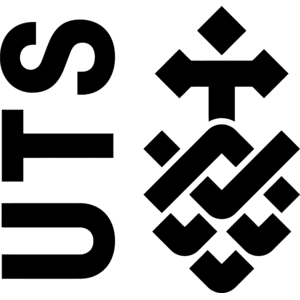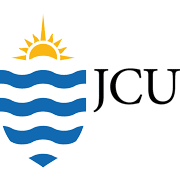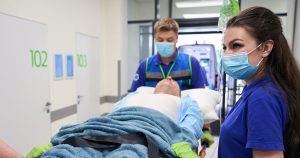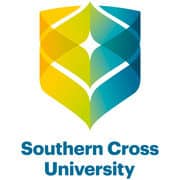Choose from a fantastic selection of university qualifications for nurses.

Australian universities offer a range of popular Graduate Certificates in Nursing online. These part-time courses consist of four subjects. Graduate in just 8 months to move your career forward.
Specialisations
Course Overview
A Graduate Certificate in Nursing is a postgraduate course aimed at nurses with at least 12 months of clinical experience. The program consists of four subjects and may be used as a stepping stone towards a graduate diploma (8 subjects) or master's degree (12 subjects).
Education for nurses doesn't stop once you've received your basic degree and started working. In addition to on-the-job learning, a common launching point for career progression is a this course. Although shorter and more targeted, it's comparable to a graduate diploma in terms of educational standard.
Graduate certificates provide advanced training in specialist fields such as acute care, critical care, clinical practice, perioperative, paediatrics, and education. You can improve your on-the-job performance, create specialist job opportunities, and establish a platform for further study.
Related: Postgraduate Nursing Courses Online
Popular Specialisations
Some specialty areas are especially favoured by Australian nurses. Here are the specialisations we're asked about the most.
Acute Care
Almost any nurse working in a hospital or similar environment where patients experience short-term health episodes can benefit from studying acute care nursing. Programs focus on methods to be alert and responsive.
UTS Online - Graduate Certificate in Acute Care Nursing
The UTS Online Graduate Certificate in Acute Care Nursing prepares you to respond effectively to rapid-onset patient conditions. It includes four subjects focusing on using nursing-sensitive indicators, identifying and addressing patient decline, implementing evidence-based practices, and building specialist expertise. This fully online course can be completed in just 8 months of part-time study. It requires current employment in a hospital setting.
Advanced Nursing
Advanced Nursing courses are favoured by nurses seeking a skill upgrade and who may be in a challenging clinical setting. You'll study practical topics that you likely encountered in your bachelor degree. These subjects are examined in depth at an advanced level, giving you confidence to apply your expanded knowledge at work.
UTS Online - Graduate Certificate in Advanced Nursing
UTS Online’s Advanced Nursing program is designed for nurses who want to gain the foundations to drive better outcomes for person-centred care in advanced clinical settings. Through this course, you’ll develop advanced skills in nursing practice, applied pathophysiology and implementing evidence. This course is delivered part-time, 100% online and influenced by strong healthcare industry partners, making it one of the most contemporary and comprehensive courses of its kind.
Clinical Nursing
The study of Clinical Nursing is ideal for early-career nurses looking to boost their competence and confidence when working in a high-pressure environment. Postgraduate certificate courses are designed to expand your professional knowledge and skills while staying relevant to practice requirements.
James Cook University - Graduate Certificate of Nursing (Advanced Practice)
The Graduate Certificate of Nursing (Advanced Practice) from James Cook University is a general, practical course that is a pathway to a Master of Nursing degree. The 100% online program covers the topics of effective clinical governance, advanced health assessment, persuasive communication, and the quality use of medicines in practice. You can earn this postgraduate qualification over 8 months of part-time study while working full-time.
Critical Care
Nursing in an intensive care setting requires specialised knowledge and expertise to assess and manage patients. Online study for a Critical Care certificate has the potential to create career opportunities in specialist roles. As well as critical care nurse, graduates may be positioned for clinical education and management positions.
UTS Online - Graduate Certificate in Critical Care
UTS Online’s Graduate Certificate in Critical Care is for aspiring nursing leaders looking to learn and apply specialist knowledge in patient care. Through this course, you’ll develop an understanding of core critical care concepts and be able to confidently evaluate complex patient data to inform clinical decision-making. You'll learn contemporary critical care concepts in a collaborative learning environment, engaging in interactive activities that address real-world challenges relevant to your practice. Delivered 100% online, this course allows maximum flexibility so that you can fit learning around your schedule.
Emergency Nursing
Gain advanced skills in emergency care with a program orientated around acute care nursing. This course is particularly valuable for emergency nurses working in emergency departments and other time-sensitive environments. It emphasises decision-making, clinical skills, care coordination, and managing patients who may be in distress.
Leadership and Management
A management career is a possibility for any registered nurse wanting greater responsibilities, whether that's supervising staff, managing a team, or leading an organisational unit. Build the skills you need to be a confident and capable manager with a management and leadership course. Potential future roles include associate nurse unit manager and nurse unit manager.
James Cook University - Graduate Certificate of Nursing (Leadership & Management)
JCU Online's Graduate Certificate of Nursing (Leadership and Management) is a training course for healthcare managers and leaders. The online learning program will engage your mind in the kind of thinking required in leadership roles. You'll explore, for example, client care, strategic planning, evidence-based decision making, professional resilience, and ethics in health management. By doing this course, you'll develop strategies for the expert handling of diverse management challenges. Graduates are eligible to continue studying for a graduate diploma or master's degree.
Mental Health
Certification in mental health nursing will expand your knowledge and skills in this field, better equipping you to apply evidence-based practice in the workplace. The postgraduate course provides specialist training and may be used as a pathway for a graduate diploma or masters degree. Example topics are acute episodes, physical health care, supporting behaviour change, and wellbeing across the lifespan.
SCU Online - Graduate Certificate in Mental Health Nursing
An excellent foundation for potentially becoming a mental health nurse is the Graduate Certificate in Mental Health Nursing from SCU Online. You choose 4 subjects out of 6 made available from the masters program. After completing the course, you can do another 4 subjects for a graduate diploma or another 8 subjects for a masters. Both the grad dip and masters are accredited with the Australian College of Mental Health Nurses (ACMHN). Flexible arrangements allow you to study online while working full-time.
UTS Online - Graduate Certificate in Mental Health
The UTS Online Mental Health program is designed for nurses, health and social care professionals. Students acquire specialist skills to navigate patient care and lead teams that provide advanced and holistic clinical practice. Delivered 100% online and compatible with full-time work, you will develop a strong understanding of trauma-informed and recovery-focused care. Graduate with industry-recognised leadership capabilities that will prepare you for a successful future in mental health – one of Australia’s national health priority areas.
Nursing Education
Specialising in Nursing Education prepares you for nurse educator roles, with a focus on training and professional growth. The skills are also vital in many leadership roles, including clinical nurse consultant and nurse unit manager. You'll learn effective ways to organise, promote, and instruct in clinical nursing.
James Cook University - Graduate Certificate of Nursing (Education)
The Graduate Certificate of Nursing (Education) from James Cook University is open to registered nurses and midwives. The 100% online course consists of 4 subjects and is available for part-time study over 8 months, with 6 intakes annually. Topics include clinical coaching, persuasive communication, teaching in practice settings, and principles of education for the health professional. The course is also a pathway to a graduate diploma (8 subjects) and masters degree (12 subjects).
UTS Online - Graduate Certificate in Nursing Education
The Graduate Certificate in Nursing Education from UTS Online is for healthcare professionals who want to become nurse educators or otherwise develop their ability to lead workplace learning. Students explore how to: create individual education plans, design professional learning programs (for the workplace or higher education), and improve training systems for healthcare teams. The advanced program itself provides an excellent model for online professional development. The 100% online program consists of 3 cores subjects and 1 elective. Intakes are available in Jan, Mar, May, Jul, Sep, Oct.
Paediatric Nursing
Designed for nurses who work with infants, children, and adolescents, Paediatric Nursing studies combine clinical practice with theory. This course aims to refine nursing care for young patients. Completing the program prepares you to join multidisciplinary teams as a paediatric nurse.
Perioperative Nursing
For clinicians experienced in surgery-related roles like Anaesthetic, Circulating, Instrument, Recovery, and Day Surgery Nursing, a course in Perioperative Nursing offers useful specialised training. Courses offer a mix of core principles and elective options in perioperative nursing, allowing students to build general as well as role-specific knowledge.
Benefits of this Course
Obtaining postgraduate qualifications brings personal and career growth, along with financial gains. It's not just about getting better at the job; nurses often say they feel more confident and clued-up in their roles. This means they're ready to take on bigger challenges, like becoming a Clinical Nurse Specialist, which comes with a pay rise.
Nursing certification also opens up career growth opportunities. It's a chance to specialise or even shift focus within the field. And if you want to keep climbing the education ladder, it's a great first step towards a Graduate Diploma in Nursing or Master of Nursing degree.
The automatic pay increases are another advantage, meaning the course can quickly pay for itself. On average, the Qualification Allowance for nurses with a job-relevant grad cert is around $3,253 annually across Australia.














